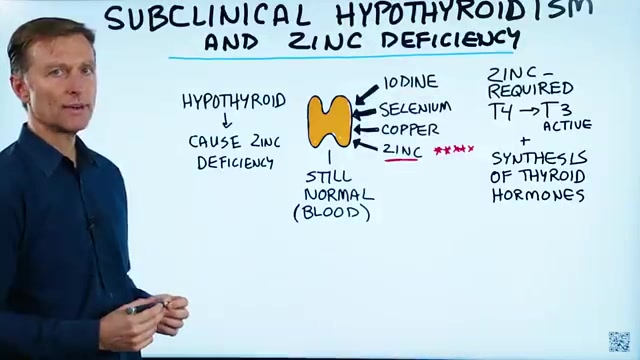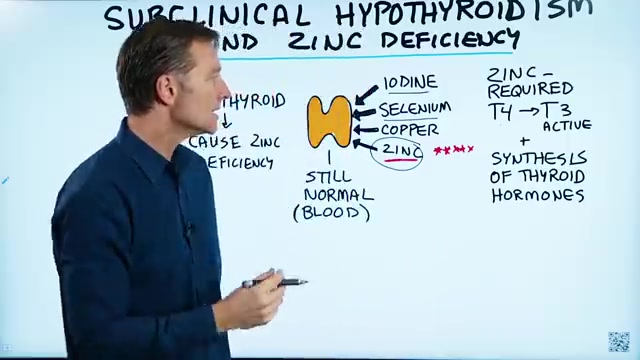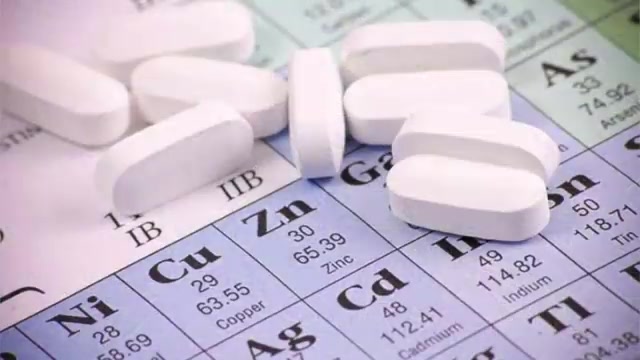
https://youtu.be/9yuZgsglX-I?si=vNS0cm9fzpGFI4hI
Subclinical Hypothyroidism and Zinc Deficiency – Dr.Berg

Today , I wanna talk about a really important missing factor in subclinical hypothyroidism , and that is zinc deficiency .
Now what is a subclinical hypothyroid problem ?
Well , it's a situation where you have a slow thyroid but the blood values are still normal .
Okay ?
So if you're just basing this only on blood tests and you're not looking deeper , you can completely miss this condition .
Now there are several really important trace minerals involved in thyroid function .
Iodine in making the thyroid .
Selenium in converting t 4 to t 3 .
Copper involved in the creation of thyroid hormone .
But another one that's not emphasized is zinc .

Zinc is not only involved in the conversion from t4 to t3 , but it's also involved in the synthesis of t4t3 as well as the thyroid stimulating hormone , the hormone that comes from the pituitary down to the thyroid itself .
Without enough zinc , you cannot convert these hormones and you can't make thyroid hormones .
Now this really is important if you're getting hair loss , alopecia , things like that .
And if you don't get enough zinc in your diet , you can take all of these , take thyroid hormones , but you may not get your hair back .
So zinc is very , very important .
The other problem is once you have a hypothyroid condition , you're gonna have a hard time absorbing zinc .
So the fact that you have a slow thyroid causes more of a zinc deficiency .
So to make this simple , if you have any thyroid symptoms , don't forget about zinc .
One way to get your zinc is to consume more shellfish .
That would be a good thing .

See kelp or just take it as a supplement .
And lastly , I believe zinc is probably one of the most important trace minerals of all the trace minerals .
It does so many different things in addition to , helping your thyroid .
So if you're not familiar with that , go and check out this video on this page talking about this amazing trace mineral , zinc .

Are you looking for a way to reach a wider audience and get more views on your videos?
Our innovative video to text transcribing service can help you do just that.
We provide accurate transcriptions of your videos along with visual content that will help you attract new viewers and keep them engaged. Plus, our data analytics and ad campaign tools can help you monetize your content and maximize your revenue.
Let's partner up and take your video content to the next level!
Contact us today to learn more.